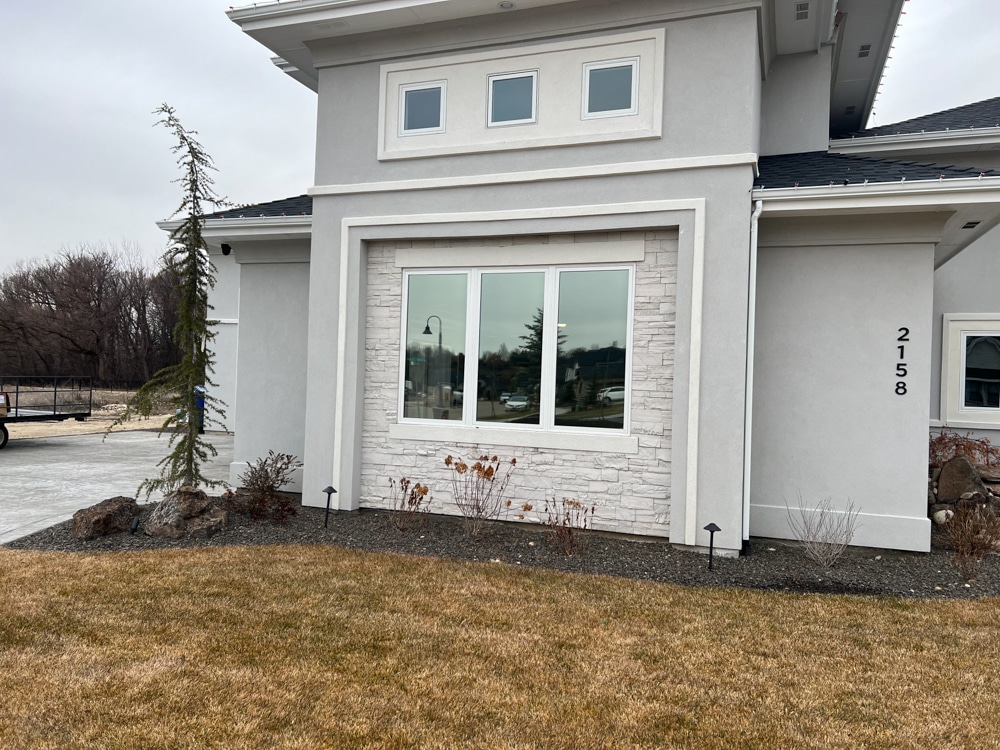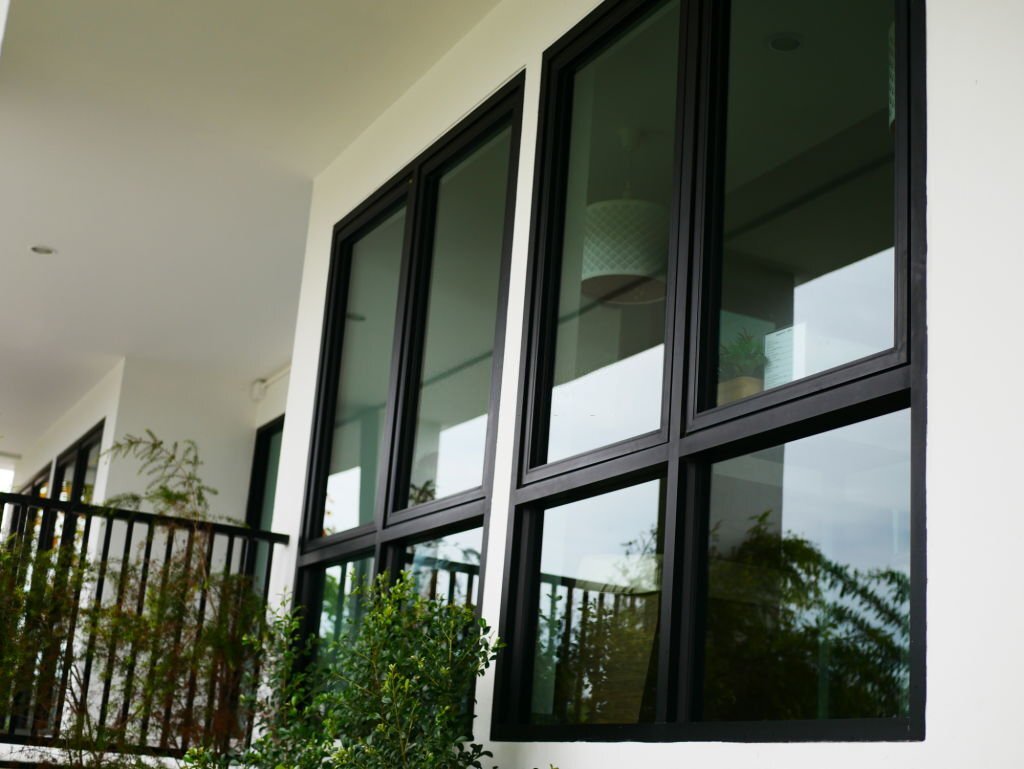Residential Window Tint: Rise Security and Include a Layer of Security
Residential Window Tint: Rise Security and Include a Layer of Security
Blog Article
Exactly How Residential Home Window Tinting Improves Your Home's Energy Efficiency
Residential home window tinting presents a compelling remedy for house owners seeking to boost energy performance within their space. By using specialized movies to home windows, it effectively decreases heat transfer, consequently maintaining interior temperature levels and decreasing the requirement for too much heating or cooling. This not only reduces power intake however also offers a more comfy atmosphere by alleviating glare. However, recognizing the nuances of just how tinting jobs and picking the ideal type for your home can be essential. Oddly, what factors should one consider prior to making this financial investment?
Understanding Home Window Tinting
Understanding window tinting is important for house owners looking for to enhance both comfort and energy performance in their space. Residential Window Tint. Home window tinting involves the application of a slim film to the inside or exterior surface area of glass home windows. This film can dramatically regulate the quantity of sunshine and warm that goes into a home, thus affecting indoor climate problems
There are numerous kinds of window tinting films available, each with unique buildings. Dyed films soak up solar energy, while reflective movies deflect it away from the glass surface area. Ceramic movies supply an equilibrium of presence and heat denial, making them a prominent choice among property owners. The performance of window tinting is commonly measured by its Visible Light Transmission (VLT) portion, which indicates just how much light can pass via the film.
Advantages of Energy Efficiency
Window tinting not only enhances aesthetic appeals yet also plays a considerable function in improving energy performance within domestic spaces. By reducing warmth transfer with windows, tinted films create a more secure interior environment, which can cause significant reductions in power usage for cooling and heating. This power effectiveness equates right into lower energy bills, giving homeowners with significant long-lasting savings.

Furthermore, window tinting boosts the comfort of living areas. By reducing glow and blocking unsafe UV rays, tinted windows produce an even more pleasurable setting, which can result in improved well-being for passengers. The protection versus UV rays likewise assists preserve furniture and flooring from fading, adding to the long life of home products.
Exactly How Tinting Works
Tinting films operate with a combination of innovative materials and technologies developed to regulate the amount of solar power entering a home. Primarily composed of polyester, these films frequently integrate metallic or ceramic fragments that absorb and reflect warm. This double ability enables them to substantially lower the infiltration of ultraviolet (UV) rays and infrared radiation while allowing noticeable light to pass through.
The effectiveness of home window tinting is measured by its solar heat gain coefficient (SHGC), which suggests how much solar energy is transmitted with the home window. Lower SHGC values are more effective as they denote better heat rejection. In addition, window tints can include a variety of shades, permitting home owners to personalize their visual choices while boosting energy efficiency.
Furthermore, these movies serve as an obstacle, avoiding heat loss during colder months by showing indoor warmth back into the space. This thermal insulation result enhances the cooling benefits gained throughout warmer months, contributing to a well balanced indoor climate year-round. By handling solar power effectively, domestic window tinting not just boosts comfort but also plays a crucial function in reducing power consumption and lowering energy expenses.
Choosing the Right Color

There are different kinds of window films available, consisting of colored, metalized, and ceramic. Ceramic films give exceptional warm control without endangering visibility and are extremely sturdy, making them a popular choice.
Visible light transmission (VLT) is another vital factor, as it suggests the quantity of natural light that can official site pass through the colored glass. Homeowners ought to pick a color with a VLT that matches their lighting choices while still supplying adequate glow decrease.
In addition, analyzing the solar warmth gain coefficient (SHGC) can help establish just how well a tint can block heat from sunlight. A lower SHGC shows much better heat control, inevitably boosting energy effectiveness.
Installation and Upkeep Tips
Correct installment and maintenance are essential elements in making the most of the benefits of property window tinting. Specialists also make use of specialized strategies and tools, which can boost the durability and effectiveness of the color.
Adhering to setup, upkeep is necessary to lengthen the life of the window movie. It is advised to wait at the very least click here for info thirty day prior to cleansing the tinted home windows to enable the adhesive to heal fully. When cleaning, make use of a soft fabric and a gentle, ammonia-free cleaner to stay clear of damaging the movie. Stay clear of unpleasant materials that could damage the surface area.
Dealing with these problems quickly can avoid more damage and keep power performance. By sticking to these setup and upkeep suggestions, homeowners can ensure their window tinting continues to offer substantial power savings and convenience for years to come.
Conclusion
To conclude, household home window tinting serves as an effective solution for enhancing energy efficiency within homes. By reducing heat transfer and blocking dangerous UV rays, home window films add to decrease power usage and improved indoor convenience. The selection of suitable tinting materials, together with appropriate setup and upkeep, further makes best use of these benefits. Inevitably, window tinting represents a sustainable financial investment that not just lowers utility costs however also advertises a comfortable living environment throughout the year.
Window tinting entails the application of a thin film to the interior or exterior surface area of glass home windows. By lowering warmth transfer through windows, tinted films develop a much more secure interior environment, which can lead sites to significant reductions in power intake for home heating and air conditioning.The efficiency of window tinting is gauged by its solar warmth gain coefficient (SHGC), which shows just how much solar energy is transferred through the home window. By managing solar power efficiently, property window tinting not only enhances comfort yet additionally plays an essential role in decreasing power usage and lowering energy expenses.
By lowering warmth transfer and obstructing harmful UV rays, home window films contribute to decrease energy usage and enhanced interior convenience.
Report this page